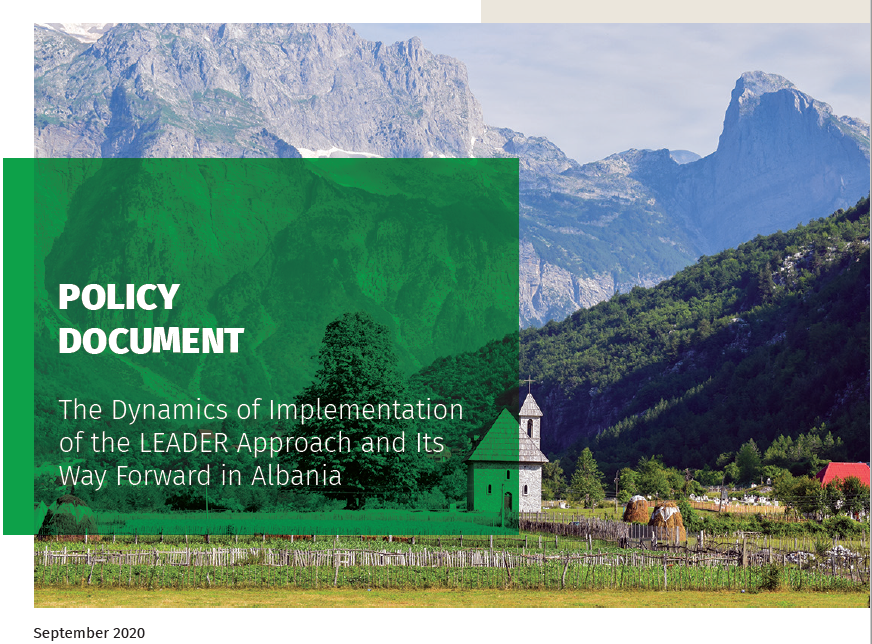This paper seeks to provide an overview of the dynamics and progress of the introduction and implementation of the LEADER approach as an instrument of rural development in Albania from its beginnings to present day. In addition, the paper contends that the implementation of this instrument is indispensable for coping with the current problems of rural areas, unaddressed effectively to date by public policies. It offers, among others, a mapping of LEADER-like initiatives, local action groups (LAGs), and other established partnership structures shedding light on challenges and weaknesses that have affected the implementation of the LEADER approach. Finally, it offers a few of recommendations that not only would help the implementation of the LEADER approach in the framework of the IPARD II Programme but would also make it successful. The overall goal of this paper is to mobilize the political will in supporting and prioritizing this instrument of the rural development policy and in speeding up its effective implementation as a crucial factor for improving the living of Albanian rural communities, particularly in curbing their depopulation and abandonment.

